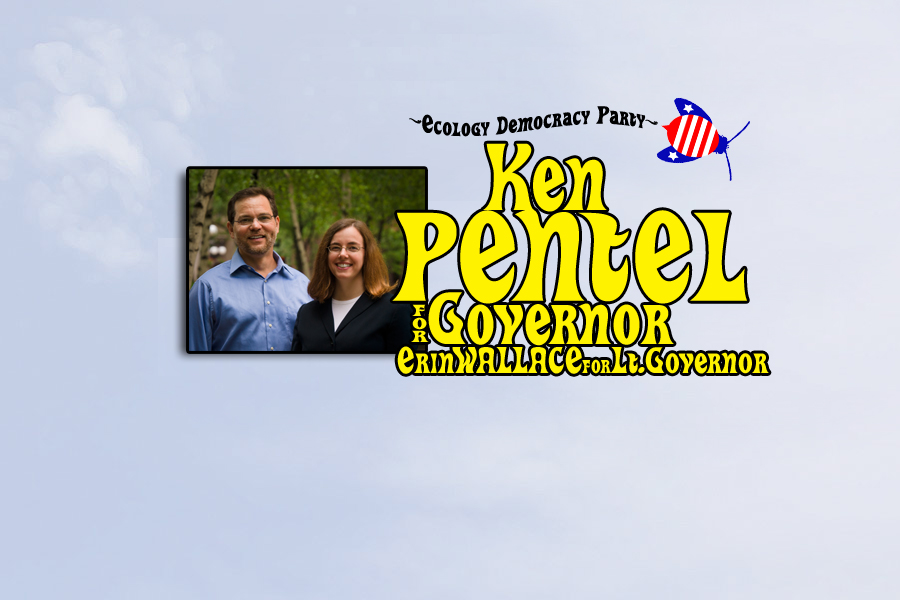Pentel/Wallace for Governor seeks to establish the Minnesota Currency asone tool in the toolbox toward building the ecological economy. This will allow us to take greater control over thecurrencyof Minnesota, and start to reel-in ecological overshoot by not being forced to growand chase the interest on the debt.Here is a further explanation by monetary specialist Rich Kotlarz: "At this time the Federal Reserve (the Fed) creates the monetary credits that are then effectively 'borrowed at interest' by the Federal Government from the Fed through the sale of 'interest-bearing' bonds to the Fed in exchange for the monetary credits so created."
So, we bond for money through private banks with the shackles of interest on the debt, and the public government, once again, is beholden to private interests. Or, to simplify, we are dependent on aprivately controlled, debt-based, money system.
One of the most clear and concise statements comes from Wright Patman (1893-1976), Congressman from Texas and former chairman of the House Money and Banking Committee:
“The dollar represents a one dollar debt to the Federal Reserve System. The Federal Reserve Banks create money out of thin air to buy Government Bonds from the U.S. Treasury . . . and has created out of nothing a . . . debt which the American People are obliged to pay with interest.
“In many years of questioning high experts on the matter, I have yet to hear even one plausible answer to the question (of) why the Government should extend money-creating powers to the private commercial banks to be used, without cost, to create money which is lent to the Government at interest.”
Here are historical examples of similar efforts:
-In 1690, the Massachusetts Bay Colony inaugurated the issuance of public ("interest-free") money.
-The colonists printed their own money (Continental Currency), which brought the wrath of the british Crown. The Continental Currency helped fund the American Revolutionary War.
-To fund the civil war President Lincoln and Congress printed non-interest bearing Treasury notes (i.e., the Greenbacks).
-Currently there are groups in local communities that print local currency, (i.e., Madison and Ithaca "Hours").
The particular Minnesota Currency and its application, which we are proposing, would be unique to the country. It would be a “supplement” to Federal currency that stays within the boundaries of Minnesota. The simple explanation of how it initially might work is:
-We could start by treating the state currency initiative as a monetary proposal that would close the gap in the state budget.
-Minnesota Department of Revenue would print the currency or voucher.
-The currency would cycle inside the borders of Minnesota avoiding the interstate commence laws.
-This currency would be redeemable in state taxes.
For example:-We could supplement the cuts in jobs and/or pay scale for state employees using Minnesota Currency. Once this currency is in circulation it will have a dollar-for-dollar value in payment of Minnesota state taxes.
-Contractors, installers, home owners, farmers, and those that do eco-friendly construction could agree to take a substantial amount of payment in Minnesota Currency.
-We could make no-interest loans in Minnesota Currency available to low income and remote locations in Minnesota
These are just a few possibilities on of how we could get Minnesota Currency into circulation.
For some guidance and /or a primer for money in our time, follow the link to:
concordresolution.org (go to: "context" tab in a link titled "New View On Money")
"The privilege of creating and issuing money is not only the supreme prerogative of government, but it is the government's greatest creative opportunity. By the adoption of these principles, the long-felt want for a uniform medium will be satisfied. The taxpayers will be saved immense sums of interest. The financing of all public enterprises, and the conduct of the Treasury will become matters of practical administration. Money will cease to be master and become the servant of humanity." – Abraham Lincoln, Senate Doc. 23, 76th Congress, 1st Session
Ecological Economy - Big Money in Politics - Public Funding - Publicly Airtime - Corporate Personhood - Proportional Representation - Establishing a Minnesota Currency - Philosophy: Holism

